Earth
Sign up for our newsletter
We summarize the week's scientific breakthroughs every Thursday.
-
 Climate
ClimateOcean acidification may make some species glow brighter
Ocean organisms use bioluminescence for hunting, defense and more. A new analysis shows that declines in water pH might change who glows and how much.
-
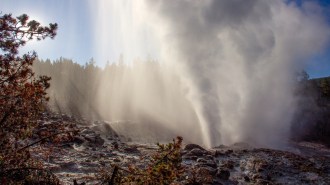 Earth
EarthReawakened Yellowstone geyser isn’t a sign of imminent explosion
The 2018 reactivation of Yellowstone’s Steamboat Geyser isn’t a portent of dangerous volcanic or hydrothermal eruptions, scientists say.
-
 Climate
ClimateWhat the pandemic can teach us about ways to reduce air pollution
Data collected during COVID-19 shutdowns may help tease out the complicated chemistry that brews poor air quality.
-
 Earth
EarthPlastic drinking water pipes exposed to high heat can leak hazardous chemicals
Lab tests exposing commonly used water pipes to wildfire-like heat show damaged pipes can leach the carcinogen benzene and other chemicals.
By Megan Sever -
 Chemistry
ChemistryA new iron-based catalyst converts carbon dioxide into jet fuel
Jet fuel made from carbon dioxide could one day reduce pollution from air travel.
-
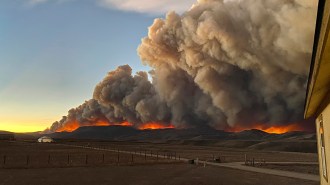 Climate
ClimateWildfires, heat waves and hurricanes broke all kinds of records in 2020
Climate change did not take a break during the pandemic.
-
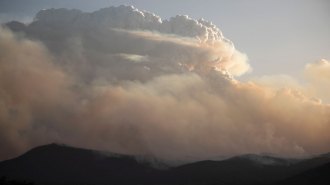 Earth
EarthTowering fire-fueled thunderclouds can spew as many aerosols as volcanic eruptions
A massive plume of smoke lofted into the stratosphere during Australia’s fires may represent a new class of “volcanic-scale” pyrocumulonimbus clouds.
-
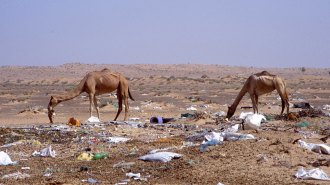 Animals
AnimalsPlastic waste forms huge, deadly masses in camel guts
Eating plastic isn’t just a sea animal problem. Researchers found suitcase-sized masses of plastic in dromedaries’ guts in the United Arab Emirates.
By Asher Jones -
 Earth
EarthIn the past 15 years, climate change has transformed the Arctic
Accumulating evidence and new tools have helped scientists better understand how the Arctic is changing, but the pace has been faster than expected.
-
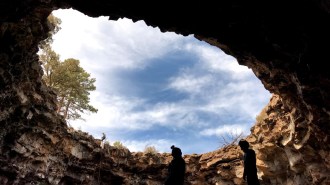 Archaeology
ArchaeologyAncient people may have survived desert droughts by melting ice in lava tubes
Bands of charcoal from fires lit long ago, found in an ice core from a New Mexico cave, correspond to five periods of drought over 800 years.
-
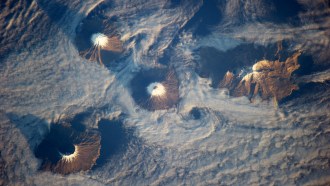 Earth
EarthAn enormous supervolcano may be hiding under Alaskan islands
A geologic game of connect the dots reveals hints that Mount Cleveland, the Aleutians’ most active volcano, may sit on a giant undersea crater.
By Beth Geiger -
 Humans
HumansAncient humans may have deliberately voyaged to Japan’s Ryukyu Islands
Satellite-tracked buoys suggest that long ago, a remote Japanese archipelago was reached by explorers on purpose, not accidentally.